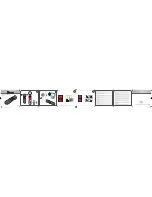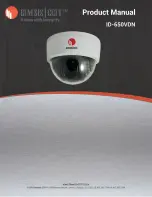
177
3
Correction of Lens Peripheral Illumination and Aberrations
N
The camera already contains data for lens peripheral illumination
correction, chromatic aberration correction, and distortion correction for
approx. 30 lenses. If you select [
Enable
], the peripheral illumination
correction, chromatic aberration correction, and distortion correction will
be applied automatically for any lens whose correction data is
registered in the camera.
With EOS Utility (EOS software), you can check which lenses have their
correction data registered in the camera. You can also register the
correction data for unregistered lenses. For details, refer to the EOS
Utility Instruction Manual.
For lenses incorporating the correction data, it is not necessary to
register the correction data to the camera.
Lens Correction Data
When distortion correction is enabled, the camera records an image
range narrower than the one seen through the viewfinder. (Image
periphery will be slightly trimmed and resolution slightly lowered.)
Distortion correction will be reflected in the captured image, but not in the
viewfinder or Live View image during shooting.
If you set [
Distortion correction
] to [
Enable
], the maximum burst
(p.145) during continuous shooting will decrease.
Distortion will not be corrected if you shoot a movie or set the HDR
mode, multiple exposures, or Multi Shot Noise Reduction.
Using distortion correction during Live View shooting will slightly affect
the angle of view.
AF point display information (p.352) and Dust Delete Data (p.405) will
not be appended to images recorded with distortion correction applied.
Summary of Contents for EOS 80D (W)
Page 188: ...188 ...
Page 226: ...226 ...
Page 292: ...292 ...
Page 388: ...388 ...
Page 402: ...402 ...
Page 448: ...448 ...
Page 525: ......
















































